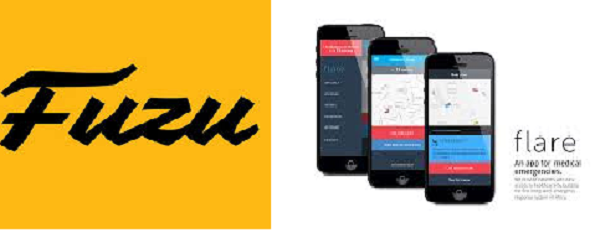
Following our earlier post here on 5 Kenyan startups recognised globally for using digital technology to positively impact the society, this blogger has come across two Kenyan startups featured on a list of African startups to watch out for in 2017. These 2 Kenyan startups are: Fuzu and Flare. This post will highlight these startups and their use of modern technology to power their businesses.
According to a 2016 World Bank report, the unemployment rate among Kenya’s youth stands at 17.3% and nearly 1 in every 5 Kenyan youth who are of working age does not have a job. Enter Fuzu. The Kiswahili word Kufuzu means to qualify or to achieve. Fuzu launched in 2015 to “stem” the gap between employers finding the right talent for their companies and young people seeking employment and career growth. Currently it is reported that Fuzu has over 180,000 users in Kenya. This Kenyan-Finnish company acts as a virtual career coach and online platform that matches job seekers known as “Fuzu users” to potential employers and employment opportunities based on their ranking, information posted on their Fuzu profiles and suitability for the position based on information obtained from the employers. Fuzu uses a freemium business model with the “booster” or premium features coming at a cost to the user. Amongst its achievements, the startup has received funding from among others, the Rockefeller Foundation and Accenture. Fuzu’s tagline is “Letting work find you” as many Fuzu users hope that the use of the platform will prove the tagline true.
Another startup to watch in 2017 is Flare, which some commentators have referred to as the “Uber for Ambulances”. Did you know that the average time an ambulance takes to arrive during an emergency in Kenya is 2 hours? 2 hours is a very long time to wait for the ambulance transporting you or your loved one to the hospital during a crisis or emergency. All indications are that Flare will function like an ambulance-hailing application that will run on smartphones and potentially save lives. Flare is the product of Capsule, a startup that is hoping to make sure that ambulance services are available to users of its app within the shortest response time possible. The app, that being tested in 2016, hopes to launch in 2017 in the Kenyan market. With over 3 million emergencies reported every year, it is hoped that this app will improve ambulance response times in Kenya. It is interesting to note that the team behind Flare comprising of Caitlin Dolkart and Maria Rabinovich were part of the Nairobi Merck Accelerator Program where they received financial, legal and other forms of support to help in the growth of their startup.
This blogger is both impressed and excited by both the work being done and the work that is going to be done by Fuzu and Flare (through Capsule) and will keep you updated on the launch of the Flare app in 2017.